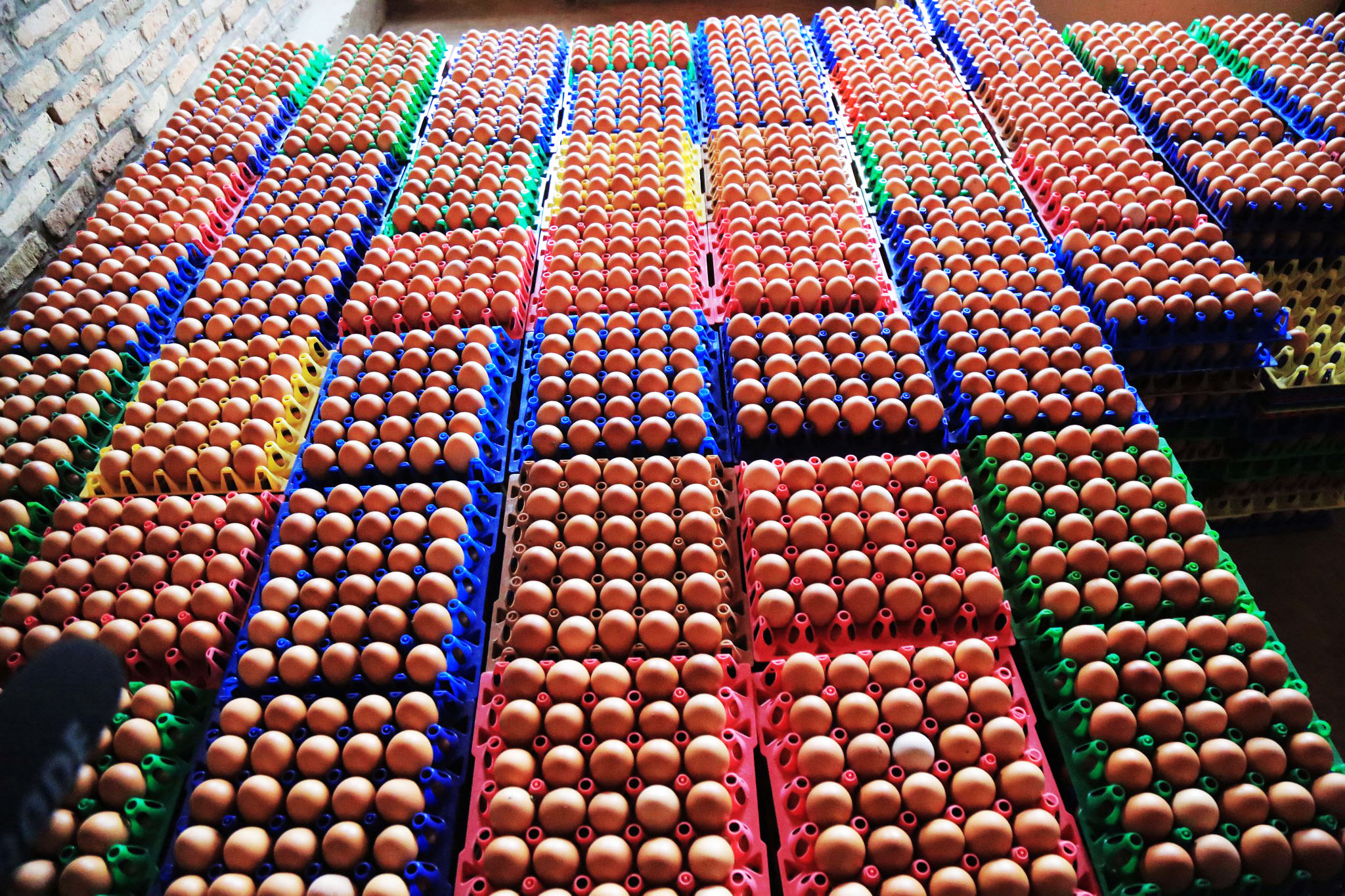

The UN’s Food and Agriculture Organization (FAO) is planning to pilot a project to process fresh eggs into egg powder, a move that is in line with finding a lasting solution to the lack of a ready market for farmers.
Gualbert Gbehounou, FAO Representative told The New Times that they expect to start the project by the end of November this year (2021).
He indicated that FAO will invest around $400,000 (around Rwf400 million) in this pilot project.
He explained that it’s a project they are going to implement in partnership with the private sector so that they can take over, indicating that they want to promote Public-Private Partnership (PPP).
"We want to test a small egg processing plant,” he said, indicating that poultry industry investors can pick up the initiative and set up a larger-scale egg processing plant.
Talking about the contribution that the development would have to the country’s poultry sector, he said "people will be able to produce more because you have released the bottleneck in the market.”
He said farmers will have less loss from fresh egg production because they will get a ready market for their produce thanks to the processing business.
"If you have egg powder, it drives, for example, the pastry sector internally,” he said, indicating that people engaged in the bakery industry have been importing egg powder to use in their industry.
"Instead of importing egg powder, we’ll have it now locally produced,” he said.
Andrew Butare, the Chairperson of Rwanda Poultry Industry Association told The New Times that there was a need for a factory that processes fresh eggs into powdered eggs, which he said can help address the market issues facing farmers.
"Prices of [egg] produce slash often when there is a larger supply than the demand on the market. In order to stabilise the prices, we need an egg processing factory,” he said, pointing out that powdered eggs can be safely kept for years, while fresh eggs cannot exceed a month without turning bad.
He pointed out that sometimes the prices of chicken feeds are high – now they are around Rwf400 a kilogramme – the prices of eggs do not increase, a situation that adversely affects the profitability of farmers considering the investment they have made.
Recovery from the Covid-19 impact on poultry sector
Gbehounou said that efforts were invested in growing the poultry sector and increasing egg production, but that farmers lacked market for their eggs especially as a result of the Covid-19 pandemic which disrupted the supply chains including the market.
As an immediate measure, he said, institutions including the World Food Programme, and UNICEF put in money to buy eggs for such Early Childhood Development [ECD] centres [so that children consume them for improved nutrition].
But, Gbehounou said that was not enough. To help address the issue in a sustainable manner, he said that FAO considered piloting fresh egg processing into egg powder.
He said that this is also in line with the economic recovery from the Covid-19 impact, mainly in the livestock subsector.
"If you have egg powder, it doesn’t rot. And, you can do plenty of things with egg powder,” he said citing cakes, among others.
"During the first weeks of Covid-19 pandemic, we had so many eggs that were rotten, and it was a huge loss. They were rotten because poultry farmers can only sell fresh eggs [yet lacked buyers]. But, if you have a plant that transforms them into powder, at least you have powdered eggs and you can store it and sell it afterwards,” he said, explaining that the development provides better access to market.
According to the livestock sector master plan developed by the Ministry of Agriculture and Animal Resources in December 2017, the total egg production from Rwanda’s poultry is expected to increase from 244 million in 2017 to 513 million by 2022.
The country planned to increase its chicken population from 7 million in 2018 to 11 million chickens by 2023, a move that could see egg production rise by 143 per cent, according to information from the Ministry.


